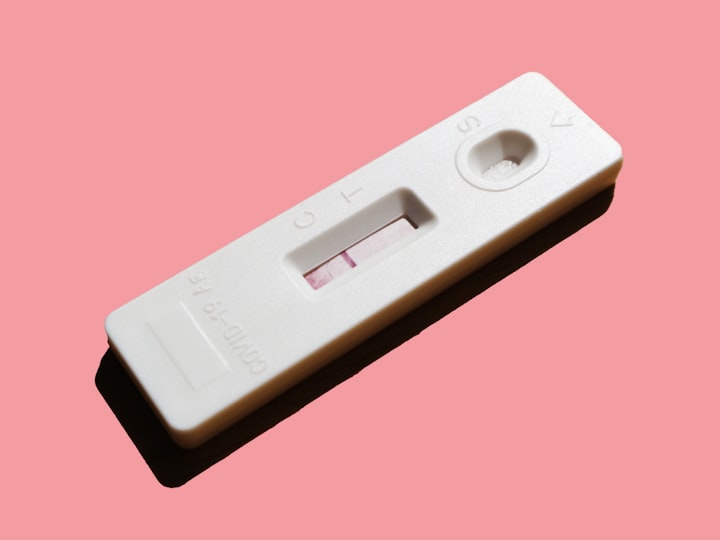When To Take A Pregnancy Test
A Guide For Expecting Individuals

Discovering whether you're pregnant can be an exciting and life-changing moment. Taking a pregnancy test is the first step in confirming your suspicions, but timing is crucial for accurate results. Understanding when to take a pregnancy test can help alleviate anxiety and provide you with reliable information. In this article, we'll explore the factors that influence the optimal timing for taking a pregnancy test, different types of tests available, and tips for accurate testing.
Understanding Pregnancy Tests:
Before delving into when to take a pregnancy test, it's essential to familiarize yourself with the two primary types of tests available: urine tests and blood tests. Urine tests are the most commonly used and can be conveniently performed at home. Blood tests, on the other hand, are conducted in healthcare settings and are more sensitive, capable of detecting pregnancy earlier than urine tests.
Factors Affecting the Timing:
Menstrual Cycle Regularity: The regularity of your menstrual cycle plays a vital role in determining when to take a pregnancy test. For those with regular cycles, it is recommended to wait until you miss a period before testing. However, irregular cycles can make it challenging to pinpoint the right time, necessitating the use of other indicators.
Sensitivity of the Test: Different pregnancy tests have varying levels of sensitivity to the pregnancy hormone hCG (human chorionic gonadotropin). Some tests can detect hCG at lower levels, allowing for early detection even before a missed period. Understanding the sensitivity of the test you choose is important when deciding when to take it.
Early Pregnancy Symptoms: While not definitive, certain early pregnancy symptoms may provide clues as to when to take a test. Common signs include breast tenderness, fatigue, nausea, increased urination, and heightened sense of smell. Experiencing these symptoms before a missed period could indicate early pregnancy and warrant an early test.
Recommended Timelines for Testing:
Waiting for a Missed Period: For individuals with regular menstrual cycles, it is generally advisable to wait until after you have missed a period before taking a pregnancy test. This is usually around 1-2 weeks after conception. Testing too early may yield false negatives as hCG levels may not be high enough to detect.
Early Testing: If you can't wait for a missed period due to irregular cycles or early pregnancy symptoms, there are early detection tests available that can provide accurate results up to six days before your expected period. These tests are typically more sensitive and require careful reading of the instructions to ensure accurate interpretation.
Retesting: In cases where an initial test yields a negative result but pregnancy is still suspected, it may be wise to retest after a few days. This allows time for hCG levels to rise, increasing the chances of accurate detection. Retesting is particularly relevant for individuals with irregular cycles or those who tested too early.
Tips for Accurate Testing:
Use the First Morning Urine: The concentration of hCG is typically higher in the first morning urine, making it the best time to take a test. It is recommended to avoid excessive fluid intake before testing to prevent dilution of the hormone in the urine sample.
Follow Test Instructions: Each pregnancy test comes with specific instructions that should be carefully followed. Failure to adhere to the instructions may result in inaccurate results. Pay attention to the recommended wait time for reading the results to avoid confusion.
Seek Medical Advice: If you are uncertain about the timing or results of a home pregnancy test, it is always a good idea to consult with a healthcare professional. They can provide guidance, perform additional tests if necessary, and address any concerns you may have.
Conclusion:
Determining the right time to take a pregnancy test is crucial for accurate results and peace of mind. Understanding the factors that influence the timing, such as regularity of menstrual cycles, test sensitivity, and early pregnancy symptoms, can help you make an informed decision. Remember to follow test instructions carefully, use the first morning urine, and consider seeking medical advice when needed. Regardless of the outcome, remember that pregnancy tests are just one step in the journey, and professional medical care is essential for proper prenatal care and support.
About the Creator
OJO OREOFE
Hi there, My name is Ojo Oreofe. I am a professional writer with over two years of experience creating content for a variety of audiences. I have worked as a freelance writer for multiple publications. In my free time, I enjoy reading.






Comments
There are no comments for this story
Be the first to respond and start the conversation.